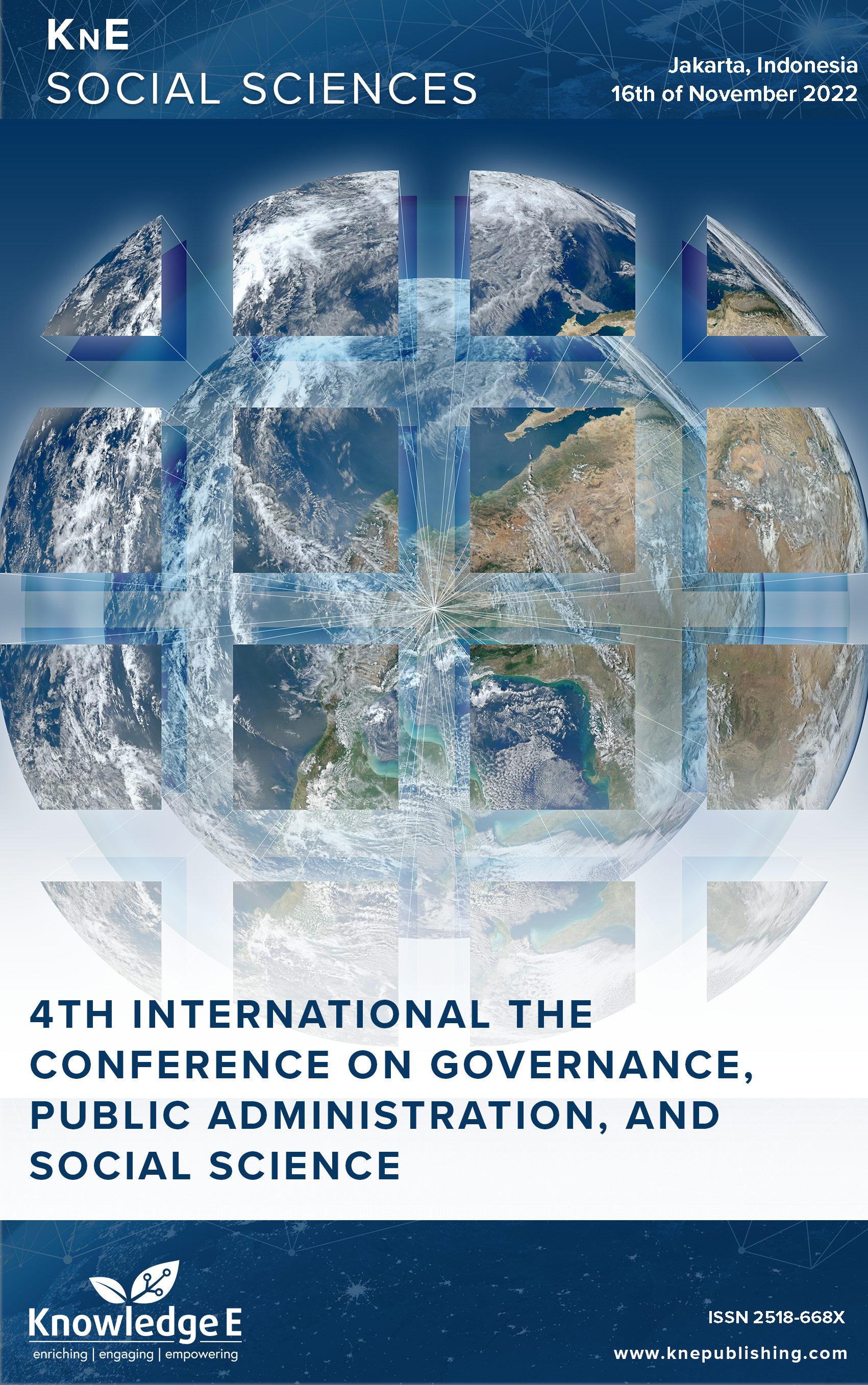Examine the Competencies for Upskilling in VUCA Era (Volatility, Uncertainty, Complexity and Ambiguity) in Indonesia
DOI:
https://doi.org/10.18502/kss.v8i11.13550Abstract
A fundamental transformation in competency development is needed to create a smart civil servant and smart governance in the context of VUCA (volatility, uncertainty, complexity, and ambiguity). The first step in the transformation is to define the competencies that are needed to address the challenges that occur. The findings of this study suggest new competencies to target for upskilling—the process of continuous learning for new skills—through formal training, self-learning, internships, and benchmarking. A focus group discussion with three ministries (the Ministry of Communication and Informatics, the National Research and Innovation Agency, the Ministry of Education, Culture, Research, and Technology) and a survey with a total of 416 Civil Servant from ministries, non-ministries, and provinces/districts, revealed that there is a change in the work environment nowadays, which makes the existing competencies need to be improved through upskilling. Based on the data finding there are two policy recommendations: 1. First, improvements are needed in the substance of upskilling/competency development so that it is more relevant to today’s changing environment. Collaboration was found to be the most important competency, and this finding supports the need to achieve the target of smart governance. Digital IT competency is needed in terms of smart governance through the collaboration. 2. Second, change in competency development methods from analog to digital, from pedagogy to heutagogy, and from training to learning.
Keywords: VUCA (volatility, uncertainty, complexity and ambiguity), gap competencies, upskilling, competency development, Indonesia
References
[2] Budiharto S, Himam F, Riyono B, Fahmi A. Membangun Konsep Organisasi Autentik. Kajian Metaetnografi. Bul Psikol. 2019;27(2):159.
[3] Bundtzen H, Hinrichs G. The link between organizational agility and VUCA – An agile assessment model. Socioecon Challenges. 2021;5(1):35–43.
[4] Tapscott D, Agnew D. Governance in the digital economy. Financ Dev. 1999;36(4):34– 37.
[5] Kementerian Pendayagunaan Aparatur Negara dan Reformasi Birokrasi - Menciptakan Smart ASN Menuju Birokrasi 4.0 [Internet]. [cited 2022 Feb 17]. Available from: https://www.menpan.go.id/site/berita-terkini/menciptakan-smart-asnmenuju- birokrasi-4-0
[6] Gerson D. Leadership for a high performing civil service: Towards a senior civil service systems in OECD countries. OECD Work Pap Public Gov [Internet]. 2020;(40):69. Available from: https://www.oecd-ilibrary.org/content/paper/ed8235c8- en
[7] Shet SV, Pereira V. Proposed managerial competencies for Industry 4.0 – Implications for social sustainability. Technol Forecast Soc Change [Internet]. 2021;173(August):121080. Available from: https://doi.org/10.1016/j.techfore.2021.121080

